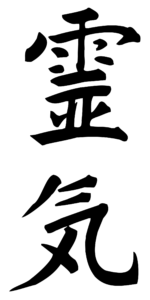What is reiki?
The definition of reiki is the energy of the mind. Reiki is a non-medical, unconventional practice, aimed at wellness. It comes from the field of Positive Mental Health, with the meaning given by the WHO, World Health Organization, and taken up by public authorities in 2009 in France, and in particular from the two non-medical dimensions concerning this field: fulfillment personal, and reactive psychological distress. In professional form, Reiki is a practice of helping and accompanying the person. Reiki is both a body and energy therapy. It dissolves in an entirely natural way the energetic tensions of the body and the spirit, which are at the origin of all forms of discomfort. Used regularly, the sessions then allow you to establish self-knowledge, to go directly to seek in oneself your natural potentials, so as not to leave room for other forms of discomfort.
Where does the reiki method come from?
The founder of reiki is called Mikao Usui was born in 1865, he died in 1926. Researcher in psychology and human functioning, he created reiki in 1922: it is a synthesis of all his knowledge, to do good to his neighbor . The rare writings of Usui indicate that Reiki unites a work of touch (position of the hands on the body) with a work of meditation. Its approach is global and atypical: centered on the functioning of the human being, reiki must bring well-being to all.
Why should I do a reiki session?
Various factors can lead you to make a session.
Increase your energy and regulate it naturally / rejuvenate naturally
Healthy living, health prevention Stress
Physical pain and somatization (headache, stomach, muscle tension, etc.)
Insomnia, poor sleep, abnormal tiredness
Mental rumination, streams of incessant thoughts (″ little bike ″)
Anxiety, burnout, depression
Overflow emotional negative
Pregnancy support (preparation for childbirth)
Accompaniment of illnesses (moral support)
Deep work on emotions (permanent cessation of mechanisms)
Shocks of life
How is a reiki session?
The sessions always open and end with speaking and listening time, especially to find out the reasons for the consultation and the patient’s medical history.
During the entire session, the patient is lying fully clothed on a massage table in order to receive reiki treatments.
The practitioner channels energy and transmits it by laying hands on the patient’s body.
In general, these parts of the body correspond to the points and energy channels of Chinese or Japanese medicine.
In reiki, hand therapy would allow the necessary union of qi with our inner vital force to restart the process of self-healing.
At the end of the session, the patient generally feels well-being and a certain relaxation, favoring his relationships with others and his behavior in the face of external aggressions.
Studies on reiki and its goods made :
– Columbia University New York: Presence of Reiki practitioners in the operating room
– Harvard University: the benefits of touch therapy
– U.S National Library of doctor: various studies on reiki and the reduction of pain in newborns, people in addiction
– Various studies identified: doc
Fees
Session : 60 €
Contact
Erwan Motais : 06.61.00.40.61
Book an appointment on Doctolib

